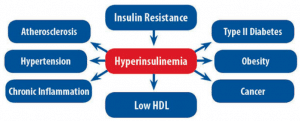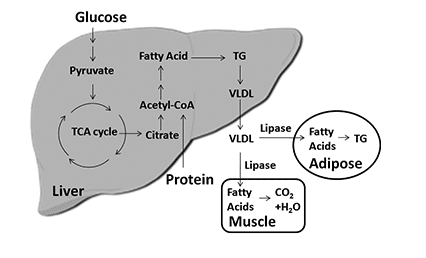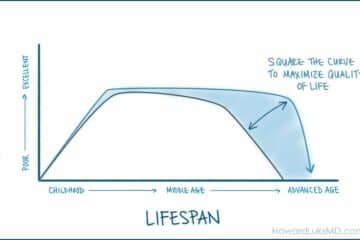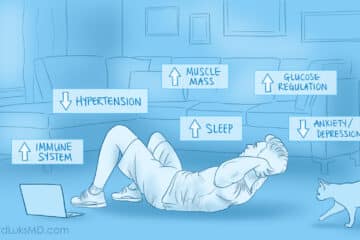
Metabolic health matters. Humans die of very predicatble diseases. Most of them are moderated in severity by improving our metabolic health. Type 2 diabetes is a serious metabolic disease with many downstream complications. The earliest forms of type 2 diabetes is insulin resistance. Insulin resistance is now prevalent in teenagers!
Glucose is typcially stored in our muscles and our liver. The muscle tissue requires insulin to take up the glucose into the cell. With insulin resistance your muscle cells do not respond to insulin well. The cells need much more insulin present to be able to store the glucose as glycogen. The muscle cells become “resistant” to the actions of insulin.
The pancreas makes insulin. Eventually the pancreas has to make so much insulin that it basically becomes exhausted and stops. This is why some people with severe type 2 diabetes need to inject insulin.
Imagine if we could predict who might develop insulin resistance and type 2 diabetes long before your pancreas stops working?!?! Imagine if we could intervene long before the progression of insulin resistance to frank type 2 diabetes and the associated chronic disease burden that comes with it? Would you modify certain food groups or change your lifestyle to gain back years of disease-free living? I imagine that most of you will answer yes to this. The issue is that we are often not told that something is wrong. Don’t assume that all doctors know this. In addition, we are not told what simple strategies we could employ to help ourselves. This post is going to change that. Knowledge is empowering. Many people will change their lifestyle if they know why they need to do it and how to accomplish it.
I have been an Orthopedic Surgeon for nearly 25 years. While I have returned many athletes to the playing field with my knife, I am often more pleased by being able to dramatically help entire families improve their health with lifestyle and dietary modification. People will often engage if they understand why they should and how to accomplish it. Over the last decade, I have chosen to optimize my own overall health and the overall health of those I treat. What often becomes evident in my interactions with you is that most of you actually do want to change your diets (within reason) and do want to exercise more. No one wants to continue their march down a path towards heart disease, stroke or neurocognitive decline and disability. Information is empowering. Knowing why we need to change and how our actions can affect that change is very powerful and often very motivating.
Your Triglyceride/HDL ratio and what it tells you
Sugar and its effect on your triglyceride levels
- Use glucose as energy.
- Store the glucose internally as glycogen.
- Convert the glucose to triglycerides, package it into a VLDL, and send it out in the bloodstream for other tissues to use.
When the VLDL particle containing the triglycerides gets into the blood, it can:
- Be taken up by muscle and stored as intramuscular triglyceride.
- It can be taken up by muscle, converted to glycogen and stored or used as a future energy source.
- It can be taken up by fat cells and stored in your body for later use.
Do you have questions regarding an Orthopedic injury or longevity?
Do you want to talk to an expert who can listen to you for 45-60 minutes and explain the options in detail?
Dr. Howard Luks offers remote guidance sessions to review your X-ray or MRI images and explain your options.
Dr. Luks has also received hundreds of requests for educational sessions on the topics discussed in his book, Longevity Simplified.














